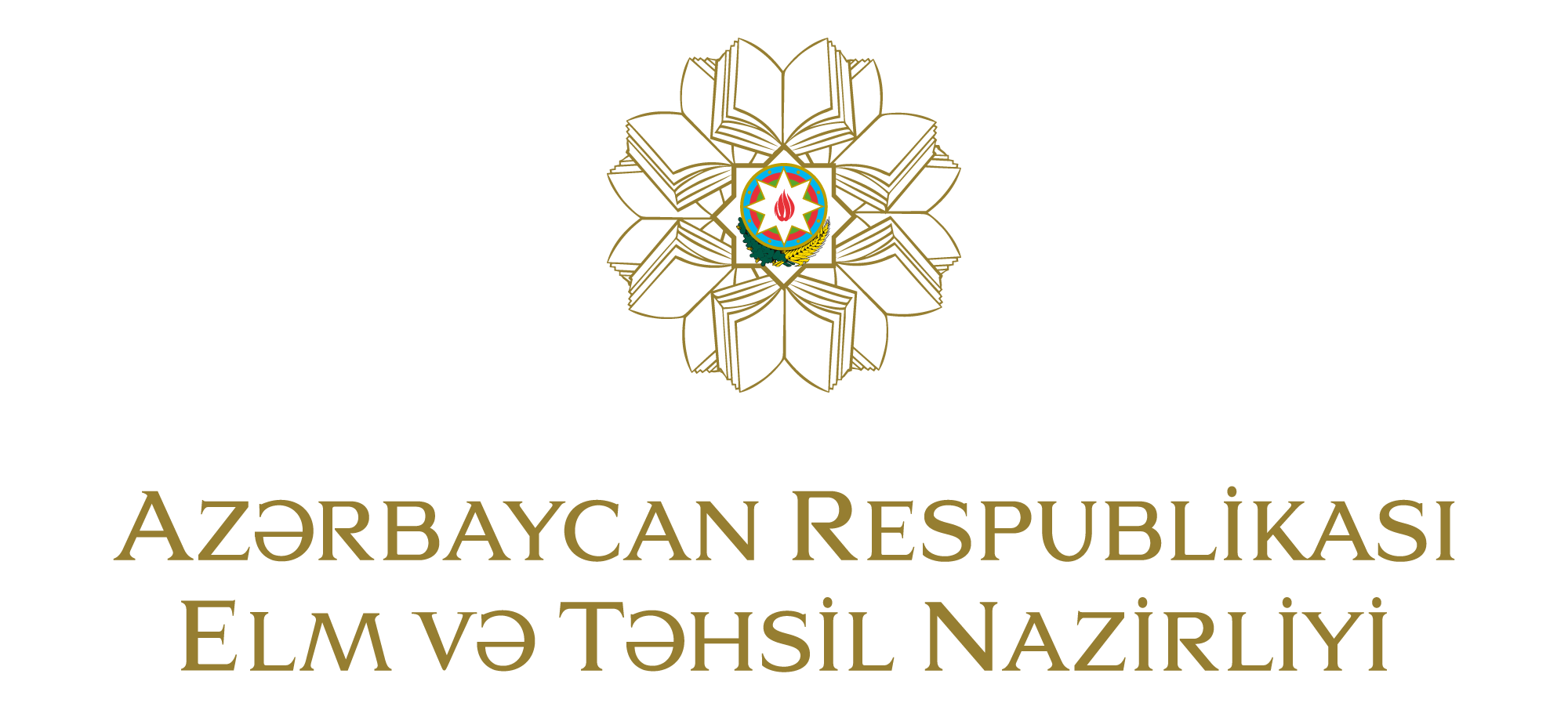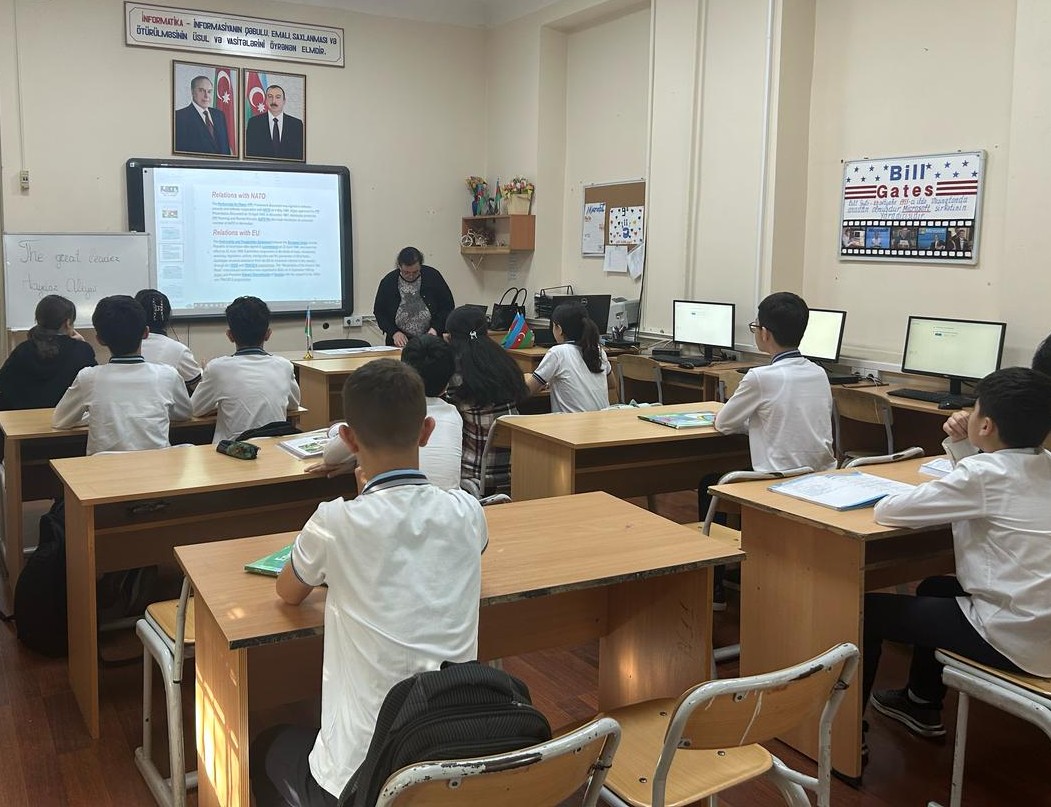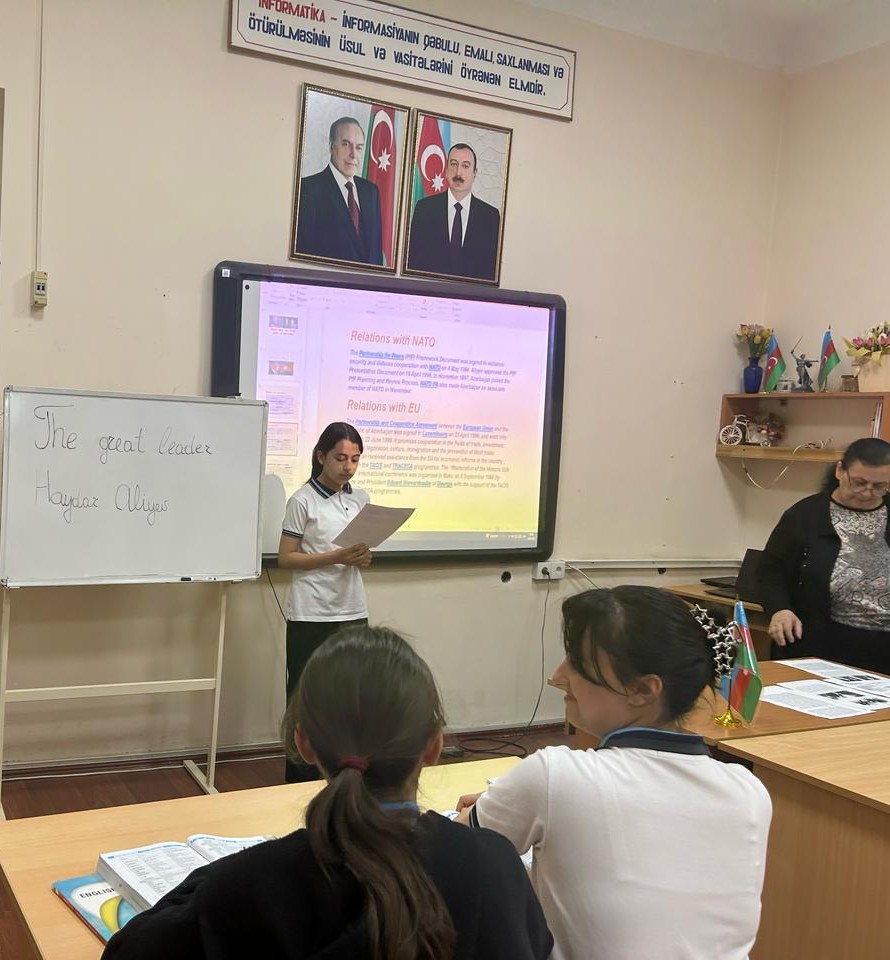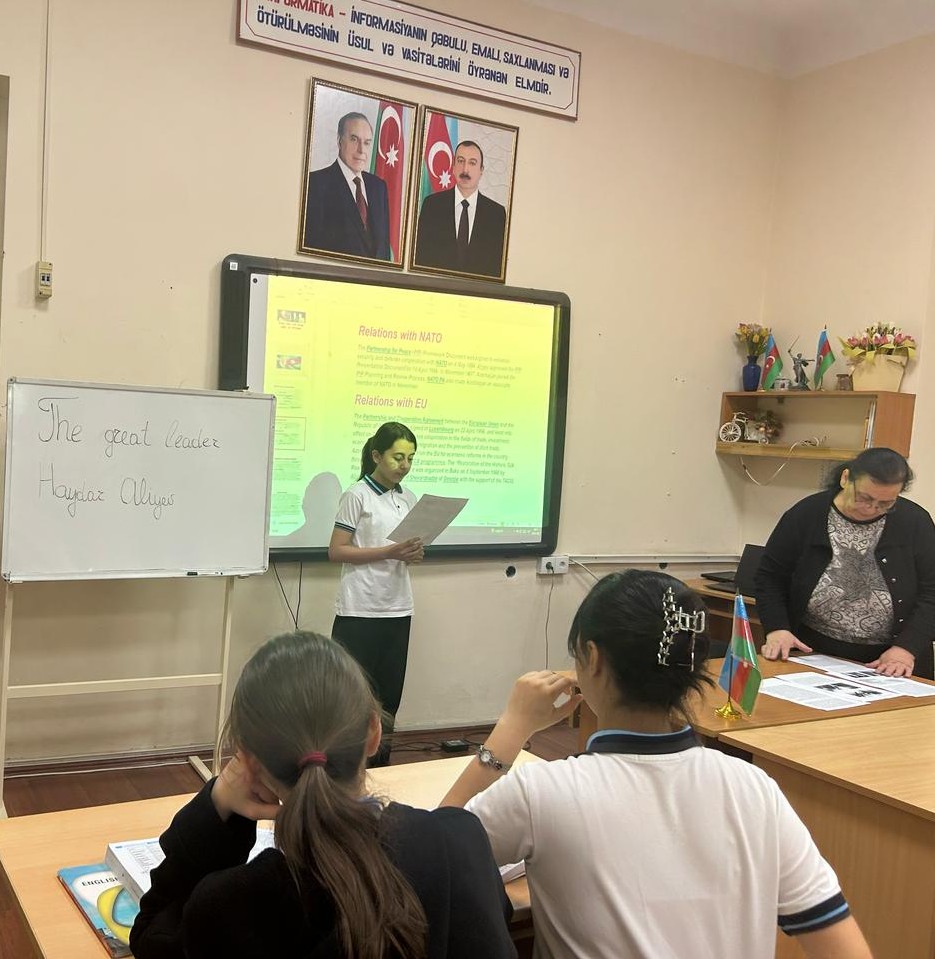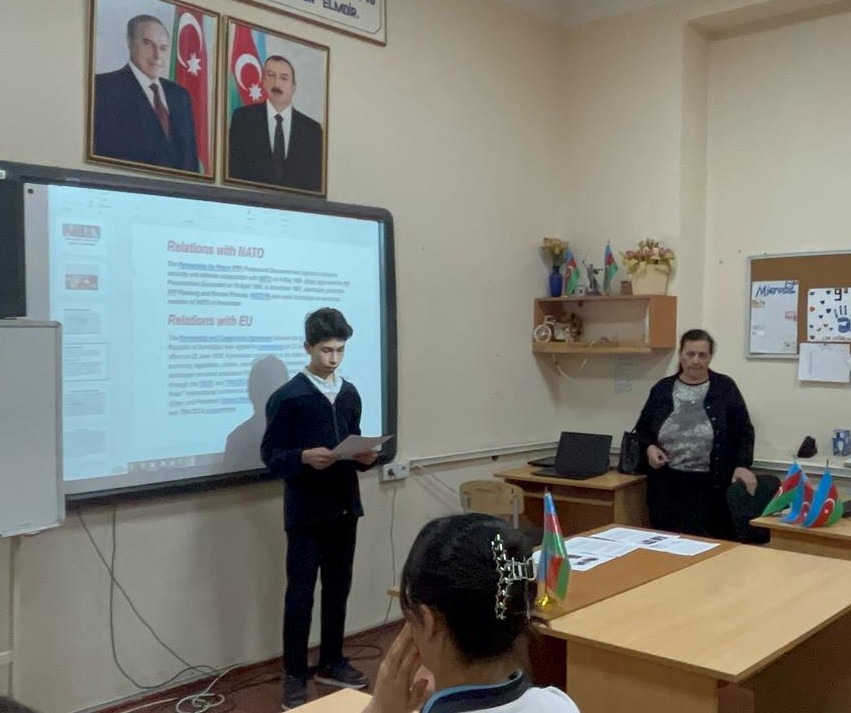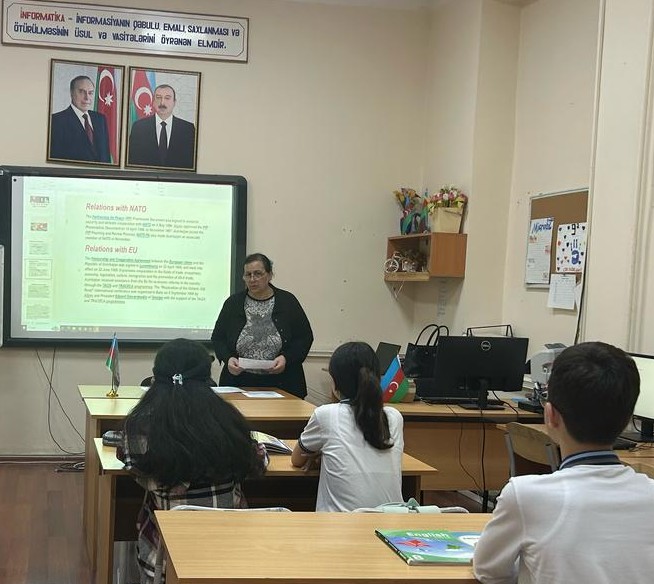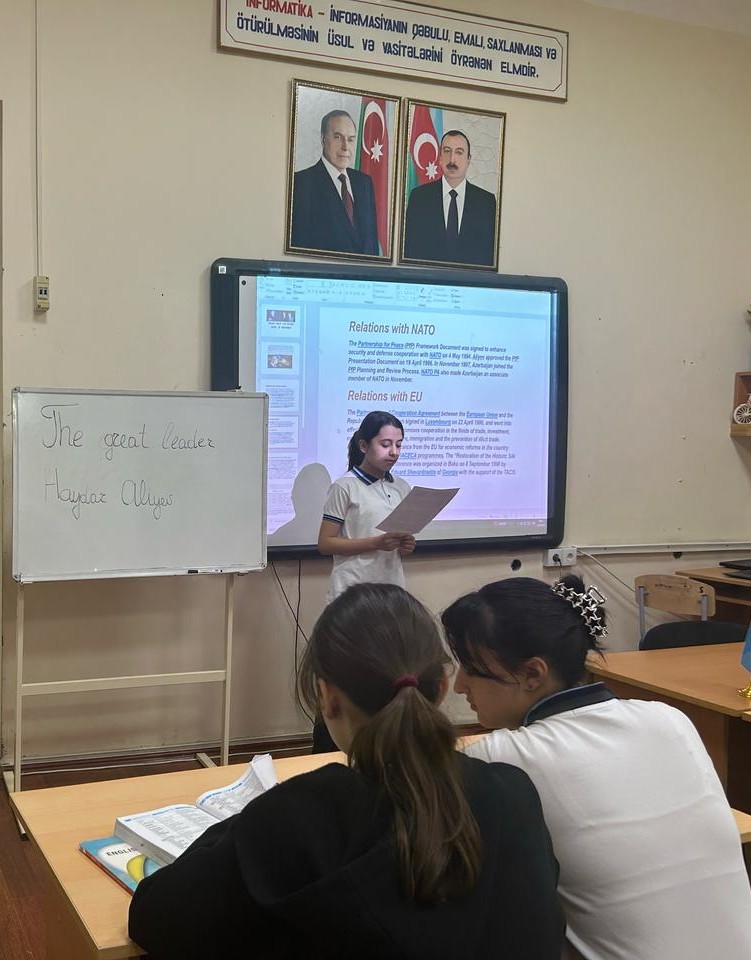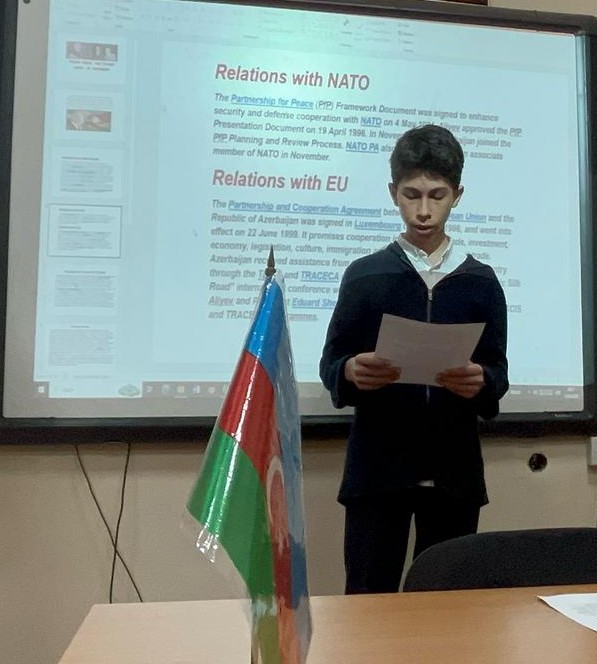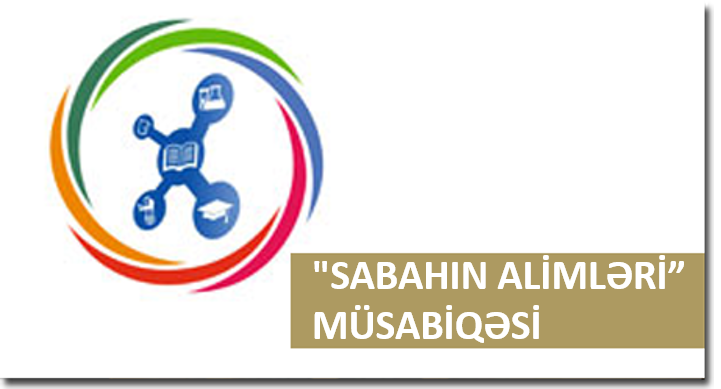“Heydər Əliyev və onun xarici siyasəti” adlı dərs keçirilib
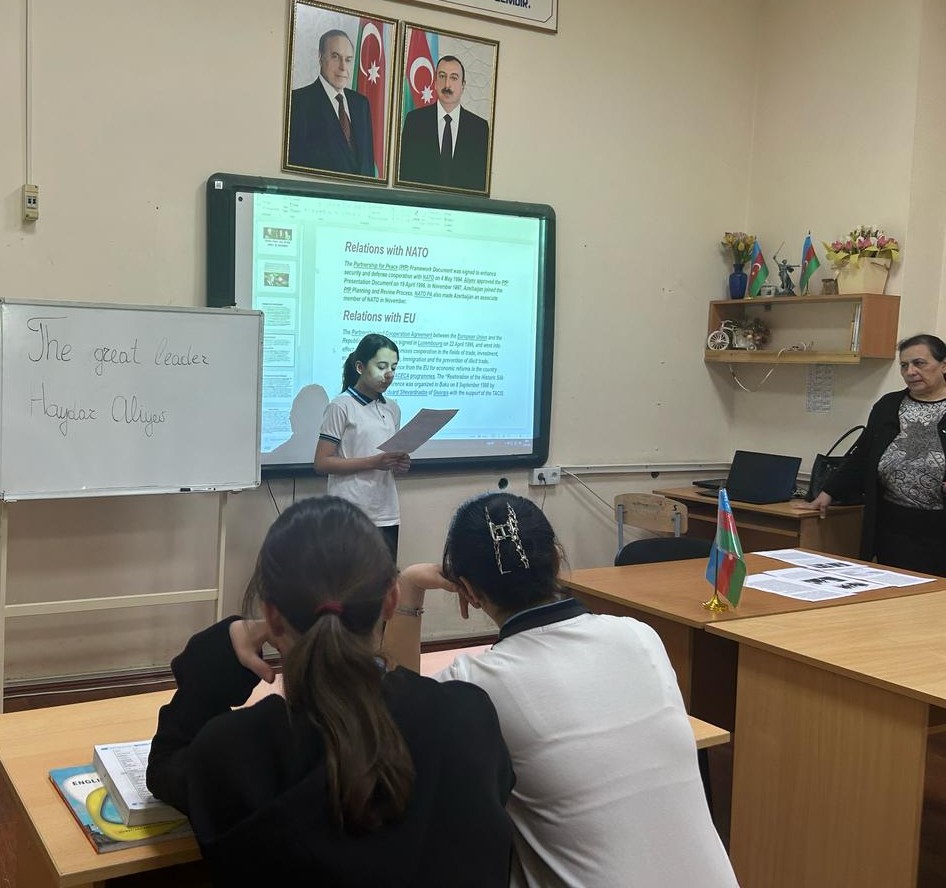
Ulu Öndər və müasir Azərbaycanın memarı Heydər Əliyevin 102–ci ildönümü ilə bağlı olaraq 10–cu sinifdə bu əlamətdar günlə bağlı şagirdlər təqdimatlar edibilər.
Təqdimatların mövzusu “Heydər Əliyev və onun xarici siyasəti” olub. 8b sinf şagirdləri Nəzrin Cəfərli, Məmmədli Nuray, Zeynallı Rüfət qürur hissi və böyük maraqla mövzu haqqında ətraflı məlumat veriblər. Dahi siyasətçinin Azərbaycan dövlətini qorumaq və inkişaf etdirmək məqsədilə apardığı güclü xarici siyasəti şagirdlər fəal şəkildə məruzədə vurğulayıblar. Məruzə ingilis dilində şagirdlər tərəfindən ifadəli şəkildə təqdim edilib.
H.Aliyev and foreign policy of Azerbaijan
Heydar Aliyev, the third President of Azerbaijan, is indeed a significant historical figure. Many people remember him for his contributions to the country, particularly in areas like economic development and international relations. His legacy continues to influence Azerbaijan and is often commemorated by those who support his vision and leadership.
Relations with United Nations
During Aliyev's presidency, Azerbaijan began actively participating within international organizations such as the United Nations. Aliyev attended the 49th session of the UN General Assembly(UN GA) in 1994 and the special session of UN GA dedicated to 50th anniversary of United Nations in October 1995. He received former Secretary General of UN Boutros-Ghali in October 1994 in Baku. Aliyev met with Secretary General Kofi Annanduring his trip to the US in 1997 July. Aliyev addressed the Millennium Summif of UN held in September 2000, where he talked about the Armenian invasion of Nagorno-Karabakh and adjacent regions, and mentioned UN resolutions 822, 853, 874, 884, which demanded unconditional withdrawal of the Armenian armed forces from the occupied Azerbaijani territories. After 11 September attacks, Azerbaijan joined the anti-terror coalition of UN and cooperated with Office of Counter-Terrorism and Sanctions Committee of the UN SC. In October 2001, Azerbaijan joined the İnternational Convention for the Suppression of the Financing of Terrorism adopted by UN SC in 1999.
Relations with NATO
The Partnership for Peace (PfP) Framework Document was signed to enhance security and defense cooperation with NATOon 4 May 1994. Aliyev approved the PfP Presentation Document on 19 April 1996. In November 1997, Azerbaijan joined the PfP Planning and Review Process. ATO PA also made Azerbaijan an associate member of NATO in November.
Relations with EU
The Parthership and Cooperation Agreement between the European Union and the Republic of Azerbaijan was signed in Luxembourg on 22 April 1996, and went into effect on 22 June 1999. It promises cooperation in the fields of trade, investment, economy, legislation, culture, immigration and the prevention of illicit trade. Azerbaijan received assistance from the EU for economic reforms in the country through the TACİS and TRACECA programmes. The “Restoration of the Historic Silk Road” international conference was organized in Baku on 8 September 1998 by Aliyev and President Eduard Shevardnadze of Georgia with the support of the TACIS and TRACECA programmes.
Relations with Council of Europe
Azerbaijan participated as a specially invited guest at the Council of Europe(CoE) on 28 June 1996. Consequently, a number of resolutions and legal acts were adopted from 1996–2001 to improve the Azerbaijani legislative system so it could fulfill the requirements of European standards and international law. On 28 June 2000, Azerbaijan's full admission to the CoE was recommended at the session of Parliamentary Assembly of the CoE. Azerbaijan became a full member of the CoE on 17 January 2001; the official ceremony was conducted on 25 January 2001. Presidential orders “On the implementation of the measures of the program of cooperation between the Council of Europe and the Republic of Azerbaijan” (8 July 1996), "On the measures of Deepening Cooperation between the Council of Europe and the Republic of Azerbaijan" (20 January 1998), and “On the measures of expanding cooperation between Azerbaijan and CoE for defending interests of the Republic of Azerbaijan in Council of Europe" (14 May 1999) were adopted by Aliyev.
Relations with Russia
Aliyev prioritized establishing warmer relations with Russia more than the previous leadership of Azerbaijan did. He stated in his speech at Milli Majlis on 15 June 1993, after being elected as the head of Parliament of Azerbaijan: "Russia, our northern neighbor, is absolutely a vast state. Undoubtedly, the relation based on independent principles between Azerbaijan and Russia must be better, broader and more fruitful." The Agreement on Friendship, Cooperation and Mutual Security between Russia and Azerbaijan was signed on 3 July 1997. Aliyev paid his first official trip to Russia as a President of the Republic of Azerbaijan in July 1997 with the invitation of Russian President Boris Yeltsin. Relations with Russia further developed through Aliyev-Putin negotiations during their bilateral visits (Vladimir Putin visited Azerbaijan in 2001 and Aliyev paid a reciprocal visit to Russia in 2002). The agreements on "The Status and Benefiting Principles of Gabala Radio Location Station", "Long term economic cooperation agreement between Russian Federation and the Azerbaijan Republic until the year 2010", and "The common declaration of the President of the Russian Federation, Vladimir Putin and President of the Republic of Azerbaijan, Heydar Aliyev" were signed in the latter meeting.
Relations with US
Aliyev with US President Bill Clinton in November 1999Aliyev with US President George W. Bush in February 2003
Establishing closer relations and developing cooperation with the US were among the main goals of Aliyev's foreign policy. He stated in one of his speeches regarding this issue: “The relations of Azerbaijan with the United States are important as we need to learn the Western democracy, culture, achievements, to benefit from them, to use and apply them in Azerbaijan. In this regard, the United States is a special country for us." Relations between the two countries strengthened after oil contracts were signed. Aliyev paid his first official visit to the US and met with President Bill Clinton on 1 August 1997. They signed a Joint Statement on future relations between the US and Azerbaijan in defense and military issues. During this trip (27 July-5 August 1997), a statement on intentions of formation of bilateral dialogue between the US and Azerbaijan regarding energy issues and the general agreement between the Government of the Azerbaijani Republic, the National Bank, and the US Export-Import Bank on the promotion of projects were signed. Additionally, 4 agreements on development and production sharing for the Azerbaijani sector of the Caspian Sea were signed. After the visit, Aliyev issued an order on “Measures to expand partnership relations between the Republic of Azerbaijan and the United States” on 2 September 1997. Azerbaijan joined a US-lead international coalition against terrorism after 11 September attacks, and sent a military contingent to Afghanistan. An amendment to the Freedom Support Act was adopted on 24 October 2002 by the US Senate to allow a US president to temporarily waive Section 907, which used to forbid to export any financial or humanitarian support to Azerbaijan.
Oil strategy
Oil pipeline routes
Aliyev used the oil potential of Azerbaijan to avoid the difficulties his country faced after the collapse of the Soviet Union by attracting foreign investment into Azerbaijan. After a year-long series of negotiations in Baku, stanbul and Houston, the “Agreement on the Joint Development and Production Sharing for the Azeri and ChiragFields and the Deep Water Portion of the Gunashli Field in the Azerbaijan Sector of the Caspian Sea” was signed in Baku on 20 September 1994 by the Government of Azerbaijan and a consortium of 11 oil companies from 6 countries (US, UK, Russia, Norway, Turkey, Saudi Arabia) in the presence of Aliyev.
The State Oil Fund of Azerbaijan was established by Presidential Decree in December 1999 to gather the income gained from oil profit with the aim of financing social and economic projects. As a result of the oil strategy developed by Aliyev, Azerbaijani oil was planned to be carried through different routes as Baku-Supsa, Baku-Tbilisi-Ceyhan pipeline (BTC), etc. In order to export Azerbaijani oil to the European market, the presidents of Azerbaijan, Georgia and Turkey agreed to construct the Baku-Tbilisi-Ceyhan pipeline in 1998 in Ankara. The ground-breaking ceremony of BTC took place in September 2002 with the participation of Aliyev, Turkish President Ahmet Necdet Sezer, and Georgian President Edward Shevardnadze.
The decision to export Azerbaijani crude oil to the Port of Novorossiysk was made through a contract signed in Moscow on 18 February 1996. Oil transportation through this route was realized in October 1997. Establishment of the alternative Baku-Supsa route was agreed on 8 March 1996 by Aliyev and Shevardnadze. The Baku–Supsa route began operation in April.
